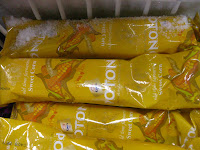
Dear Monisha,
When I was nervous about moving to New York, here is what you said to me: “Everyone always complains about how New York is too crowded and too expensive and smells like urine. And that’s all true. And you’ll love it.”
You were right, of course, and perhaps about more than just the city. In Cambodia, it was the same trick of reverse psychology—it was the difficult, uncomfortable things that I came to hold most tightly. Cambodia from the back of a wheezing moto, with dust in my teeth and amoebae turning my stomach, this weird, lawless, striving land. Why are my eyes tearing up when I think of the mud and poverty, things I hated for fifteen months? It might be simple masochism. Or it might be that we have to love a place after we have spent so much time overcoming its difficulties, the same way we love cantankerous cars and naughty children. But I think that the truth may be something stranger yet, and more universal—that the borders between comfort and discomfort are thin and constantly in flux.
Nowhere is this more apparent than where I am sitting right now, perched at the end of a week-long visit to India, which has been sandwiched between leaving Cambodia and returning to the U.S. I flew into Calcutta, a city you have been to, a city you have roots in, to visit one of the sweetest, most level-headed people I knew in graduate school. Saloni is now living in her family home in nearby Jamshedpur. How do I describe the feeling of being there after Cambodia except to say that it was comfortable, almost overwhelmingly so? India is a country easily accessible to Americans like me through its books, its movies, its dance clubs, its dairy products—all of the things Cambodia lacks. We were nowhere near a tourist town like Siem Reap, but hospitality toward strangers was the norm nevertheless. Not just Saloni but dozens of relatives whom I’d never met went out of their way to welcome me, entertain me, feed me endless quantities of rich food. It was so over-the–top, this treatment, that I think most people would have felt a little awkward, but whenever I said so, Saloni shrugged and said, “This is just the way it is here.” Land of a lot, we began calling it.
On the day before I left, we went to the Hindu temple in Calcutta dedicated to the goddess Kali. Here was the India that people and warned would overwhelm me, a Bruegel painting of countless dirty children and beggars and rough-looking dogs, all the things I’d felt myself reflexively looking for since I left Siem Reap. Saloni snapped her fingers in front of a child whose supposed mother was asking us for money and I knew that she was checking to see if the baby had been rented and drugged, the same way they are rumored to be in Cambodia. We walked in bare feet through the street and into the temple where frenzied masses of people were pushing, crying out, falling over each other as they moved in a human cascade past the alter. Men with sticks pushed back the chaos of flesh for a split second so that paying tourists like us could get a glimpse of the goddess’s three eyes, narrowed with wrath, before we were whisked out to a sunken square where goats are sacrificed in the mornings. Our guide, who seemed equal parts priest and con man, told us to touch the alter because it is “anti-danger.” Why goat sacrifice in a mostly vegetarian religion? Why anti-danger, when the mysterious sludge gumming my feet to the ground seems like perhaps most dangerous thing I have seen in India? We pushed our way back out, zigzagging through the ferocious crowd, everything a dizzy crying spin. Was it desperation or religious ecstasy that was pressing in on us? This is life lived close to the surface, and if the temple is not built upon the limits of sense, as it feels to me, it is at least at the limits of comfort.
Back in the car, Saloni was a little horrified at taking us to the Kali temple. “I was born in a crazy country,” she says. The car driver said that not many tourists come there anymore. I ask why, and his smile says, “Isn’t it obvious?” How do we reconcile these two intertwined worlds, the generosity of Saloni’s family and the meanness of the world outside the temple? And yet, it makes some sort of sense to me—comfort and discomfort are all part of the same country, the same experience. There is bound to be some sort of discomfort wrapped up in “a lot,” whether it is my own shrinking in front of the unknown or Saloni’s frustrated exhaustion at the constant thread of obligations to the same family members who adore her.
And now I am high above the ground, flying back to a country that is easiest and most comfortable, that is home. Is ease what I want, though? I am nervous, soaring above the darkened clouds and arctic waters. Being in Cambodia has blurred all the lines between what I want and what I need, between what is comfortable and what is not. I am no martyr, certainly, since that would mean taking on discomfort for a greater good. I have done so at times out of circumstance and at times to fulfill some sense of pleasure or expectation that I do not fully understand. You are the same, I think—I can call up so distinctly your almost frighteningly iron work ethic buried beneath the thinnest layer of warm blankets and a stuffed Snoopy. I send this wishing only comfort for you while knowing that we, and maybe everyone, will always find new ways of standing in the spaces between, for no other reason than it is what we do.
With love,
Shannon




























